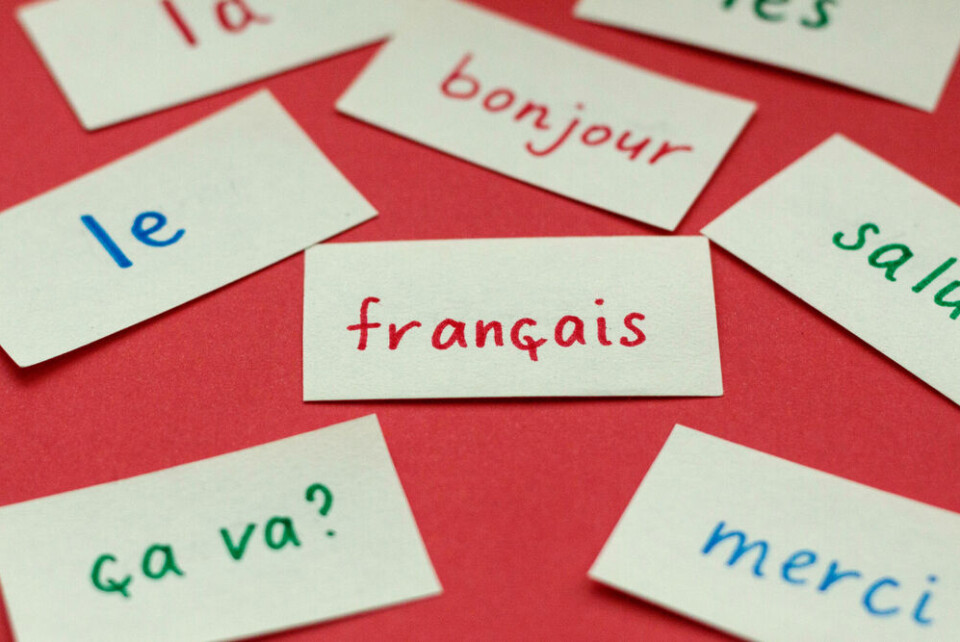-
Can you guess the meaning of grincheux?
Read about a real-life example illustrating when to use this fun French adjective
-
When and why do we say c’est la goutte d'eau qui fait déborder le vase?
An expression to indicate that something has tipped you over the edge
-
More French podcasts to test your language skills
Podcasts are one of the best free tools for consistently developing your listening comprehension
Le? La? Why learning the gender of a noun makes life in France easier
English-speakers can struggle with masculine and feminine words but gender in language can be useful, argues Nick Inman

Who in their right mind invents a language that divides everything in existence into two piles: masculine and feminine?
English manages without such an artificial device. There are nouns that are obviously one thing or the other (man/woman) but, conveniently, most things, concepts and creatures are a neutral ‘it’.
Except for ships and pets.
Not so in French. You have to get used to gender and, to help you, I have two pieces of advice to pass on.
Learn the gender when you acquire a new noun
The first is that there are no perfect rules.
Anything relating to human beings is fairly straightforward: the noun accords to gender in the biological sense.
The problems are to do with the rest of the language. How do you know whether a word is masculine or feminine?
You don’t. As guidance only, nouns ending in -e and –tion are most likely to be feminine and those ending in –age are probably masculine.
However, there are exceptions in both cases. All you can do is learn the gender when you acquire a new noun, as if it were an inseparable part of it, which it is.
Read more: When do you say ‘un’ après-midi and when ‘une’ après-midi in French?
I’m harder to understand the more mistakes I make
My second piece of advice is that it both does and does not matter whether you get the gender right.
When I make a mistake in speech, my listener might wince in the same way as we would when hearing an example of tortured grammar, but they will still understand me.
It is just another obstacle to intelligibility, along with my generally awful accent.
The reason we are talking about this subject is that gender dictates the form of other words around the noun.
Sometimes an error is relatively minor: whether I say le or la, un or une and the difference between grand (masculine, last letter silent) and grande (feminine, last two letters pronounced) is slight.
But the more small mistakes I make, the harder it is to get my message across.
Read more: Grammar points to watch out for in spoken French
People take me seriously if I get the gender right
If he is generous, my interlocutor will forgive me if I utter a barbarity such as mon vieux maison.
This is wrong on two counts: the possessive pronoun and adjective must adapt to the gender as ma vieille maison.
This will not wash when I am dealing with a busy, stressed stranger who would find it easier to ignore me than make an effort with his ear.
The more I get gender right, the more people take me seriously and focus on what I am saying, not how I am saying it.
It makes French more precise
In written French, I have no excuse. The tools exist for me to check the gender of a word I want to use and the spelling of other parts of the sentence will be affected.
If I do not make my adjectives agree with their corresponding nouns, I risk looking illiterate, as well as being a foreigner.
If you have gotten this far and are thinking ‘Big deal, why bother?’, I should tell you that gender serves two very important purposes in French.
One is clarity. In English, when we say ‘friend’ or ‘cousin’ or ‘neighbour’, we give no clue as to whether the person in question is a man or woman.
French is more precise. You must make a choice: ami/amie, cousin/cousine, voisin/voisine.
Say what you mean
The other function of gender is, of course, to distinguish between homophones.
Context helps – that is how English manages – but gender pins a distinction down.
Le pot (flower pot) and la peau (skin) sound the same and if you say la pot and le peau you will confuse any sane French person.
This homophone business also adds to your skills of comprehension: le critique is the critic but la critique is criticism.
In the same way, un livre is a book but une livre is a unit of British currency, and so on.
It is worth knowing about gender for one good reason alone: to be sure you are really saying what you mean.
Related articles
Eight ways to express surprise in French apart from Oh là là
Understand the difference between quoique and quoi que in French
‘Unlike English there is a right and wrong way to speak French’
























